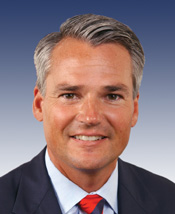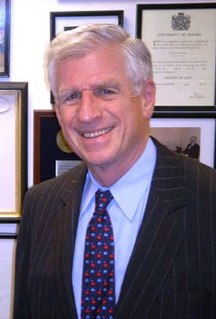A Quote by George W. Bush
[T]he people of Iraq have spoken to the world, and the world is hearing the voice of freedom from the center of the Middle East.
Related Quotes
Freedom is on the march in this world. I believe everybody in the Middle East desires to live in freedom. I believe women in the Middle East want to live in a free society. I believe mothers and fathers want to raise their children in a free and peaceful world. I believe all these things, because freedom is not America's gift to the world, freedom is the almighty God's gift to each man and woman in this world.
Sadly, a U.S. invasion of Iraq 'would threaten the whole stability of the Middle East' - or so Amr Moussa, secretary-general of the Arab League, told the BBC on Tuesday. Amr's talking points are so Sept. 10: It's supposed to destabilize the Middle East. The stability of the Middle East is unique in the non-democratic world and it's the lack of change in Iraq, Iran, Saudi Arabia, Syria, Egypt that's turned them into a fetid swamp of terrorist bottom-feeders.
The Iranian issue I don't think has much to do with nuclear weapons frankly. Nobody is saying Iran should have nuclear weapons nor should anybody else. But the point in the Middle East, as distinct from North Korea, is that this is center of the world's energy resources. Originally the British and secondarily the French had dominated it, but after the Second World War, it's been a U.S. preserve. That's been an axiom of U.S. foreign policy, that it must control Middle East energy resources.
Peace in Syria is not only our priority; it's a Middle Eastern priority, and when the Middle East is stable, the rest of the world is stable, because the Middle East is the heart of the world geographically and geopolitically, and Syria is the heart of the Middle East geographically and geopolitically.
I talked about the human suffering in Iraq. And I also saw the need to advance a freedom agenda. Imagine a world in which Saddam Hussein was there, stirring up even more trouble in a part of the world that had so much resentment and so much hatred that people came and killed 3,000 of our citizens. I've heard this theory about everything was just fine until we arrived and the stir-up-the-hornet's- nest theory. It just doesn't hold water, as far as I'm concerned. The terrorists attacked us and killed 3,000 of our citizens before we started the freedom agenda in the Middle East.





























